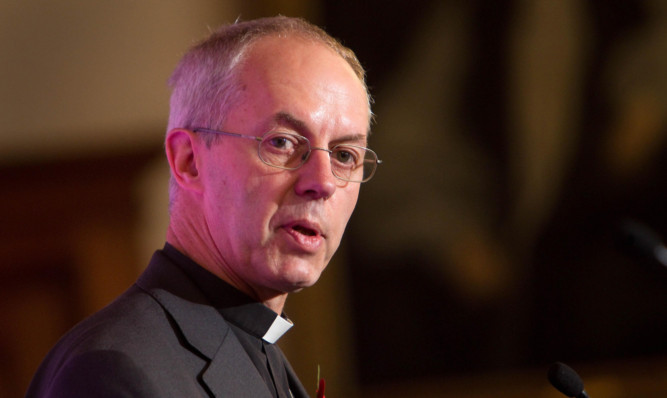The Church of England has called for an investigation into its own pension fund after it emerged it had links to Wonga – the payday lender the Archbishop of Canterbury said he wants to take on.
The Financial Times said the fund, which claims to have a strong ethical investment policy that explicitly bans companies involved in payday lending, has invested in Accel Partners, the US venture capital firm that led Wonga’s 2009 fundraising.
It comes after The Most Rev Justin Welby said the Church of England wants to “compete” Wonga out of existence as part of its plans to expand credit unions as an alternative to payday lenders.
In a statement, Lambeth Palace said: “We are grateful to the Financial Times for pointing out this serious inconsistency of which we were unaware.
“We will be asking the Assets Committee of the Church Commissioners to investigate how this has occurred and to review the holding in this pooled investment vehicle.”
It added: “We will also be requesting the Church Commissions to investigate whether there are any other inconsistencies as normally all investment policies are reviewed by the Ethical Investment Advisory Group (EIAG).”
The Archbishop has been keen to clamp down on short-term loan firms, which are often characterised by high interest rates and swift approval times, by setting up a credit union for the clergy.
He was backed by Business Secretary Vince Cable, who said the Government was looking at better regulation of the industry as well as a bar on advertising high interest loans to people who can ill-afford to pay them back.
But the FT said the pension fund investment – despite being only a few million pounds, according to its source – threatened to undermine the Archbishop’s pledges to take on the payday lenders.
The Archbishop, who has served on the parliamentary Banking Standards Commission, has said he plans to expand the reach of credit unions as part of a long-term campaign to boost competition in the banking sector.
There are also plans to encourage church members with relevant skills to volunteer at credit unions. Small, local lenders could also be invited to use church buildings and other community locations with the help of church members.
The Government announced an investment of £38 million in credit unions in April to help them offer an alternative option to payday lenders.
The entire pay day lending industry, worth £2 billion, was referred last month for a full-blown investigation by the Competition Commission after the trading watchdog uncovered “deep-rooted” problems with the industry.
The Office of Fair Trading (OFT) said it decided to make the referral because it continues to suspect that features of the market “prevent, restrict or distort competition”.
Wonga said in March that it welcomed any attempt to encourage responsible lending and that it has been “instrumental” in helping to raise industry standards.
Errol Damelin, the founder of Wonga, who met Mr Welby recently, said: “The Archbishop is clearly an exceptional individual and someone who understands the power of innovation.
“We discussed the future of banking and financial services, as well as our emerging digital society.
“There is mutual respect, some differing opinions and a meeting of minds on many big issues.
“On the competition point, we always welcome fresh approaches that give people a fuller set of alternatives to solve their financial challenges. I’m all for better consumer choice.”
